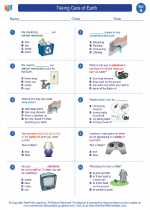Action Potential
An action potential is a brief electrical impulse that travels along the membrane of a nerve cell (neuron) or muscle cell. It is a key part of the process by which nerve cells communicate with each other and with other cells in the body.
When a neuron is at rest, it has a slightly negative charge inside compared to the outside. When it receives a signal from another neuron or from a sensory receptor, this causes a change in the balance of ions (charged particles) inside and outside the cell, leading to a rapid reversal of the charge. This rapid change in charge is the action potential, which travels along the neuron's membrane, allowing the cell to transmit signals to other cells.
Key Concepts to Understand
- Neurons: Nerve cells that transmit signals in the body.
- Ions: Charged particles that play a key role in generating and transmitting action potentials.
- Resting Potential: The slightly negative charge inside a neuron when it is at rest.
- Threshold: The level of stimulation needed to trigger an action potential.
- Propagation: The process by which an action potential travels along the membrane of a neuron.
Study Guide
Here are some key questions and activities to help you understand action potential:
- What is a neuron, and what is its role in the body?
- Can you explain the concept of ions and how they are involved in generating action potentials?
- Draw a picture of a neuron and label its key parts, such as the cell body, dendrites, and axon.
- What is the resting potential of a neuron, and why is it important?
- Imagine you are a signal traveling along a neuron. Draw a comic strip showing how an action potential is generated and transmitted to another cell.
By understanding the process of action potential, you can gain a deeper insight into how our bodies work and how nerve cells communicate with each other. Have fun exploring this fascinating topic!
.◂Science Worksheets and Study Guides First Grade. Taking Care of Earth

 Worksheet/Answer key
Worksheet/Answer key
 Worksheet/Answer key
Worksheet/Answer key
 Worksheet/Answer key
Worksheet/Answer key
 Vocabulary/Answer key
Vocabulary/Answer key
 Vocabulary/Answer key
Vocabulary/Answer key
